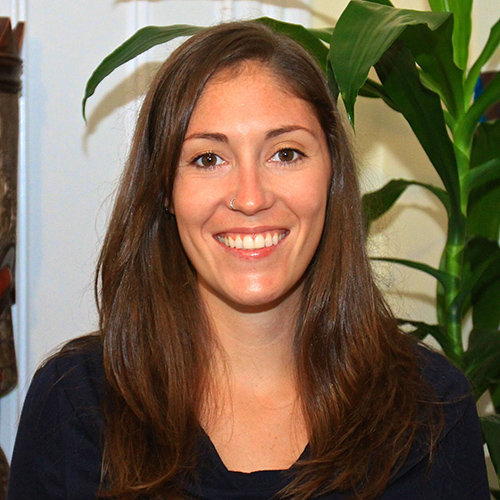Meagan Symington
About

Meagan Symington is originally from Vancouver Island, BC. Before beginning her university career she spent many years traveling around the world, working as a scuba instructor and amateur underwater photographer. The experience gained from this field of work ignited a passion for environmental conservation, with a special interest in coastal areas. This time abroad allowed her to engage with people from various cultures and backgrounds, which brought to light vast disparities that exist across developed and developing nations. This reality instilled in her a desire to further her knowledge on conservation and development, and to work towards creating a more equitable and sustainable future.
Meagan has a Bachelor of Arts with a double major in French and International Development Studies (Honours) from Saint Mary’s University (SMU). Her honours research focused on local perceptions of water quality and the associated health risks, which she conducted in The Gambia, West Africa. Most recently, Meagan completed a Masters degree in International Development Studies at SMU, thanks to a research fellowship with the Community Conservation Research Network (CCRN). Her Masters research focused on community-based forest conservation and development, which was conducted in the coastal community of Tujereng in The Gambia. Meagan was also a recipient of Robin Rigby Trust funding, which allowed her to successfully implement an environmental education initiative in The Gambia, in collaboration with her colleague Amy Berry and the Nova Scotia-Gambia Association. This project involved creating a localized educational documentary on climate change, as well as creating curriculum on the same topic and providing in-school training to high school students—all of which was informed by the research made possible by the CCRN.
Since moving to Nova Scotia in 2010, Meagan has continued to dive recreationally. This has led to volunteer and work opportunities with local eelgrass (or seagrass) conservation and restoration projects (including monitoring and documenting invasive Green Crabs) in south-western Nova Scotia as well as the west coast of Newfoundland. The community groups spearheading this research are part of a global seagrass monitoring network called ‘SeagrassNet’. This network investigates and documents the status of seagrass, as it can be considered a barometer of ecological health in coastal marine ecosystems and is home to lobster, crab and small fish that are important to local fisheries.
Meagan is currently employed by Saint Mary’s University as a researcher under the direction of Dr. Tony Charles. Her research focuses primarily on: social-ecological systems and the human dimensions of natural resource management and conservation, sustainable fishery systems, marine policy and conservation, climate change, sustainability and community planning, as well as working on building green economies in Nova Scotia and Canada.
Publications (Theses)
- Symington, M. 2015. Community-Based Conservation and Development: the Case of the Mori Kunda Community Forest in Tujereng, The Gambia (Master’s thesis). Saint Mary’s University, Halifax, NS, Canada.
- Symington, M. 2013. Gaining Perspective: Addressing the Role of Local Perceptions of Water Quality and the Associated Health Risks in Reducing Vulnerability to Water Insecurity: The Case of The Gambia (Undergraduate thesis). Saint Mary’s University, Halifax, NS, Canada.


